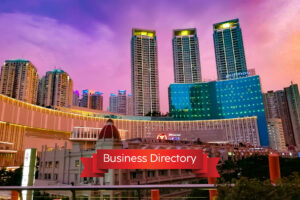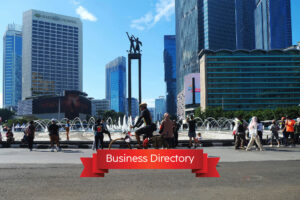As global economies evolve, many developing nations grapple with a recurring challenge known as the “middle-income trap”—a situation where economic progress stalls after reaching middle-income status. For Indonesia, this challenge looms large, yet there is hope in the form of a green economy. By adopting environmentally sustainable practices, Indonesia could potentially enhance its GDP growth by 6.25% from 2025 to 2045.
The middle-income trap has been a significant concern for Indonesia, signaling economic stagnation despite past successes. Countries caught in this trap often face stagnant per capita income growth, failing to transition into high-income status. Key factors contributing to this issue include reliance on non-innovative industries, uneven wealth distribution, and inadequate infrastructure.
Despite its impressive economic track record, Indonesia remains vulnerable to these challenges. The country’s lower-middle-income status underscores the risk of economic stagnation if strategic interventions are not undertaken. Here, the green economy emerges as a promising solution, offering a way to escape the middle-income trap and achieve sustainable, inclusive growth.
Green Economy in Indonesia
Adopting a green economy, which focuses on low-carbon development and climate resilience, could significantly impact Indonesia’s economic future. According to Priyanto Rohmatullah, Director of Environmental Affairs at the National Development Planning Agency (Bappenas), this approach could boost Indonesia’s average GDP growth rate by 6.25% between 2025 and 2045.
Priyanto highlighted the importance of green economy policies during the Katadata Sustainability Action For The Future Economy (SAFE) 2024 event on August 7. He stated, “This is crucial when discussing how to achieve high economic needs to escape the middle-income trap.”
Green economy policies not only aim to improve economic performance but also help Indonesia reach Net Zero Emission (NZE) by 2060 or earlier. Additionally, the government is promoting a circular economy, which emphasizes the efficient use of resources and reduction of waste.
Priyanto further explained that Indonesia’s development plans already incorporate green economy principles. “Reducing greenhouse gases toward net zero emission is one of the targets in Indonesia’s Vision 2045,” he added.
The circular economy is vital for accelerating Indonesia’s economic progress. This model could create up to 4 million green jobs and reduce waste by 18-52% compared to current practices by 2030. Moreover, it could lower greenhouse gas emissions by up to 126 million tons of carbon.
Read also: Jokowi Officially Grants Land Use Rights (HGU) in IKN for Investors, Up to 190 Years!
Airlangga Hartarto, Coordinating Minister for Economic Affairs, emphasized the long-term benefits of the green economy during his virtual address at the Green Economy Expo 2024 on July 3. “The implementation of a green economy in the long term is projected to stabilize average economic growth at 6.22% until 2045, reduce emissions by 86 million tons of CO2-equivalent, and create up to 4.4 million jobs,” he said.
For Indonesia to transition successfully to a green economy, it must balance economic, social, and environmental factors while aligning with Sustainable Development Goals (SDGs), the Paris Agreement, and Vision 2045. The shift from a brown economy to circular, green, and blue economies is crucial for achieving these goals.
Opportunities of Green Economy in Indonesia
The green economy offers two main opportunities: transitioning existing economic activities and enhancing industry competitiveness through sustainability. In the energy sector, this transition involves adopting renewable sources such as solar, wind, hydro, and biomass.
The circular economy model is already being embraced by 152 Indonesian companies with Green Industry Certifications. These certifications not only save energy worth Rp3.2 trillion annually but also reduce water usage by Rp169 billion per year. The government’s development of 22 Special Economic Zones (SEZs) also aims to integrate green and circular economy principles to attract green investments.
Innovative startups are also contributing to this transition. Many new businesses are adopting the 9R principles of the circular economy: Refuse, Rethink, Reduce, Reuse, Repair, Refurbish, Remanufacture, Recycle, and Recover. These initiatives reflect a growing trend among young entrepreneurs who see opportunities in implementing circular and green economy practices.
The Importance of Public Engagement
Public awareness and participation are crucial for this economic transition. By increasing understanding of the benefits of a green economy and involving the public in eco-friendly practices, Indonesia can accelerate its progress.
In conclusion, the green economy offers a viable path for Indonesia to escape the middle-income trap and achieve high-income status. By integrating sustainability into its economic model, Indonesia can enhance growth, protect the environment, and improve the quality of life for its citizens. Strategic implementation of green economy principles will determine how effectively Indonesia can leverage this potential for sustainable economic success in the future.





 20% off today. Whatsapp us!
20% off today. Whatsapp us!